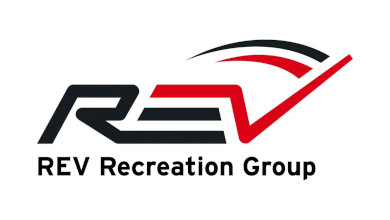REV Group Reports ‘Strong’ Fiscal 2024 Fourth Quarter

REV Group Inc. reported results for its 2024 fourth quarter, the three months ended Oct. 31.
Consolidated net sales in the fourth quarter 2024 were $597.9 million, compared to $693.3 million for the three months ended Oct. 31, 2023. Net sales for the fourth quarter 2023 included $54.2 million attributable to Collins Bus Corporation, which was divested on Jan. 26. Excluding the impact of the Collins divestiture, net sales decreased $41.2 million, or 6.4% compared to the prior year quarter. The decrease, excluding the impact of Collins, was primarily due to lower net sales in the Recreational Vehicles segment, partially offset by higher net sales in the Specialty Vehicles segment.
Consolidated net sales for full year 2024 were $2,380.2 million for the twelve months ended Oct. 31, compared to $2,638 million for full year 2023. Excluding the impact of Collins, net sales decreased $110.8 million, or 4.4% compared to the prior year. The decrease, excluding the impact of Collins, is primarily due to lower net sales in the Recreational Vehicles segment, partially offset by higher net sales in the Specialty Vehicles segment.
The company’s fourth quarter 2024 net income was $41.7 million, or $0.80 per diluted share, compared to net income of $29.7 million, or $0.50 per diluted share, in the fourth quarter 2023. Adjusted Net Income for the fourth quarter 2024 was $26.9 million, or $0.51 per diluted share, compared to Adjusted Net Income of $31.7 million, or $0.53 per diluted share, in the fourth quarter 2023. Net income for the full year 2024 was $257.6 million, or $4.72 per diluted share, compared to net income of $45.3 million, or $0.77 per diluted share in full year 2023.
“We are proud to report strong full-year earnings, driven by the exceptional efforts of our team and the strength of our diversified portfolio,” President and CEO Mark Skonieczny said. “Significant margin improvement in the Specialty Vehicles segment, as well as excellent cost discipline, more than offset the end market demand challenges in our cyclical businesses, demonstrating our ability to navigate a dynamic market environment while delivering value for our shareholders. In addition, within fiscal 2024, we divested non-core assets, simplified our reporting structure and returned significant cash to shareholders. We are entering the new fiscal year with robust earnings momentum, and our commitment to operational excellence and sustainable growth is underscored by the intermediate financial targets outlined in our investor day materials, positioning us for expected continued success and long-term value creation.”
Specialty Vehicles segment net sales were $439.9 million in the fourth quarter 2024, a decrease of $38.9 million, or 8.1%, from $478.8 million in the fourth quarter 2023. Net sales for the fourth quarter 2023 included $54.2 million attributable to Collins. Excluding the impact of the Collins divestiture, net sales increased $15.3 million, or 3.6% compared to the prior year quarter. This increase in net sales was primarily due to price realization and increased shipments of fire apparatus and ambulance units, partially offset by lower shipments of terminal trucks.
Recreational Vehicles segment net sales were $158.1 million in the fourth quarter 2024, a decrease of $57.1 million, or 26.5%, from $215.2 million in the fourth quarter 2023. The decrease in net sales compared to the prior year quarter was primarily due to decreased unit shipments and increased discounting. The Recreational Vehicles segment backlog at the end of the fourth quarter 2024 was $291.5 million, a decrease of $93.7 million compared to $385.2 million at the end of the fourth quarter 2023. The decrease was primarily the result of lower order intake in certain categories, unit shipments against backlog and order cancellations.
Recreational Vehicles segment Adjusted EBITDA was $8.1 million in the fourth quarter 2024, a decrease of $11 million, or 57.6%, from $19.1 million in the fourth quarter 2023. The decrease was primarily due to lower unit shipments, increased discounting and inflationary pressures, partially offset by cost reduction actions.


